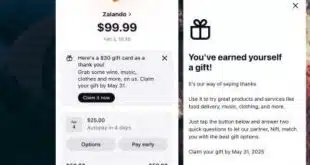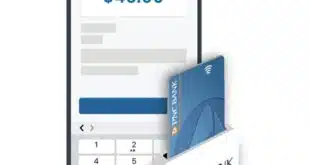A new service that lets consumers receive and pay bills on their handsets could help billers earn more income from last-minute payments customers make to avoid service shut-offs or late charges, observers say. The service, a so-called mobile lockbox, was announced last week by Wausau Financial Systems Inc., a provider of remittance software to banks and billers, and ClairMail Inc., a mobile-banking and ?payments processor. Wausau, which is integrating ClairMail's software into its own ImageRPS system, hopes to have a “small pilot” live by the end of the year, says Mike Tallitsch, senior vice president for remittance solutions at the Mosinee, Wis.-based company, in an e-mail message to Digital Transactions News. “The pilot client is still pending, however, we have a sizable pool of existing clients, primarily utilities, who are interested,” he says. ImageRPS, which automates the processing of checks sent to billers' lockboxes, handles more than 3 billion checks a year for more than 250 clients ranging from utilities to insurance companies to retailers to banks. With the mobile lockbox service, customers who register with the biller will be able to receive two-way text messages generated by ClairMail's software telling them a payment is due on a particular date to that biller. Consumers who want to pay reply using a yes-no response and short code built into the same message. Wausau's software initiates a payment to the biller using the WEB e-check application on the automated clearing house network. ACH payments generally settle the next day. Tallitsch says the text message can include a statement of convenience fees if the biller wants to use the service for expedited payments, or 11th-hour transactions consumers can make to beat payment deadlines. The linkage of expedited payments with the utility of the mobile phone could have big potential, says Bruce Cundiff, senior analyst at Javelin Strategy & Research, Pleasanton, Calif. “That's where a lot of the initial payback is going to come from,” he says. “I'm not sure 100% of the people receiving these alerts will be the target market for expedited payments, but a viable subsection will be, and that will pay for the solution.” Fees for expedited payments averaged $5.64 per transaction in 2006, according to Javelin research, though that same research showed such fees are falling sharply (Digital Transactions News, Feb. 21, 2007). While he won't specify the fees billers might pay to use the service, Tallitsch says these will include a per-transaction fee as well as a carrier fee for the short code and an installation fee. He says he expects the pilot to generate a transaction volume “in the thousands range per month.” After that, he says, “we expect in 2009 to see this volume quickly ramp up as deployment is more stable and consumers will be looking for this type of payment interaction.” Cundiff agrees it will take time for consumer demand to build up. “It's an awareness issue,” he says. “It's early for there to be proactive consumer demand.” David Thompson, vice president of marketing at Novato, Calif.-based ClairMail, says in an e-mail message that nearly all phones in use are now capable of sending and receiving short-message-service (SMS) transmissions, and so can be used with the mobile-lockbox service. And, he says, the integration with Wausau may not be the last such link-up for his company. “If there are other partnership opportunities that look to be equally as valuable, ClairMail will pursue them,” he says.
Check Also
PNC Launches an Acceptance App for Micro-Merchants
PNC Bank early Wednesday announced the launch of PNC Mobile Accept, a card-acceptance solution for …




